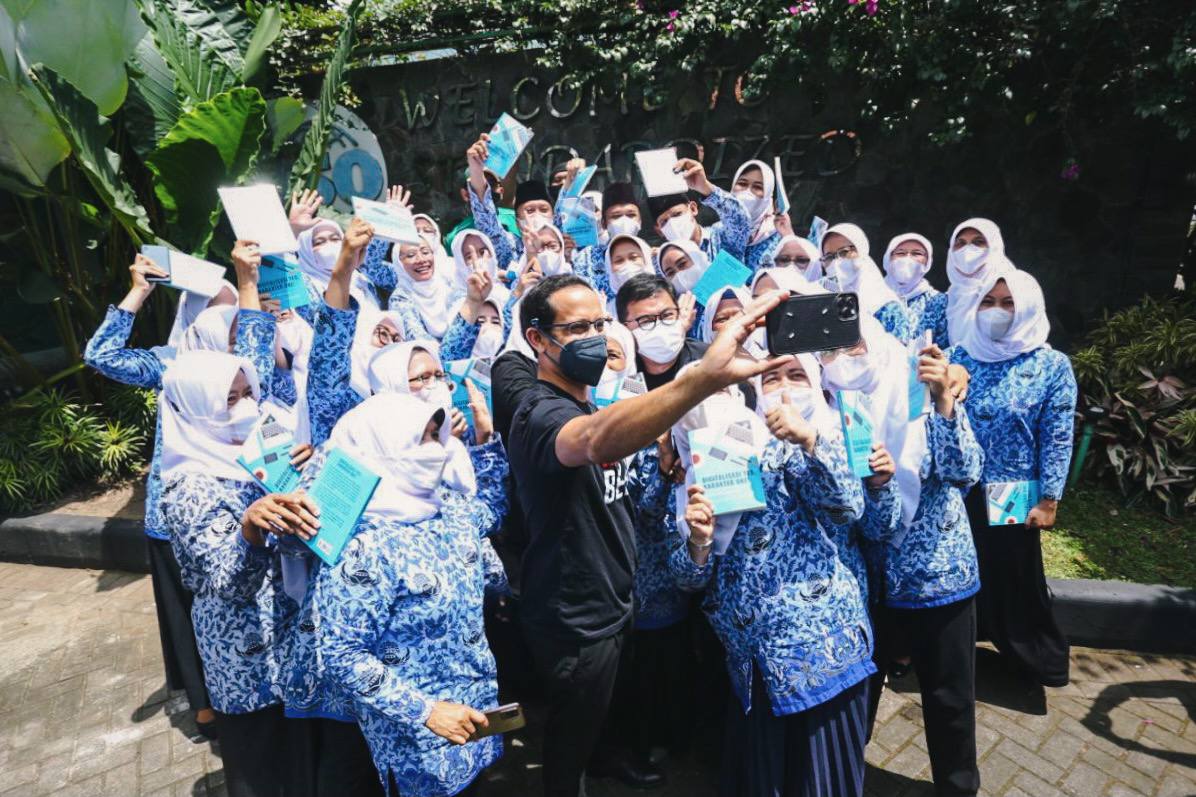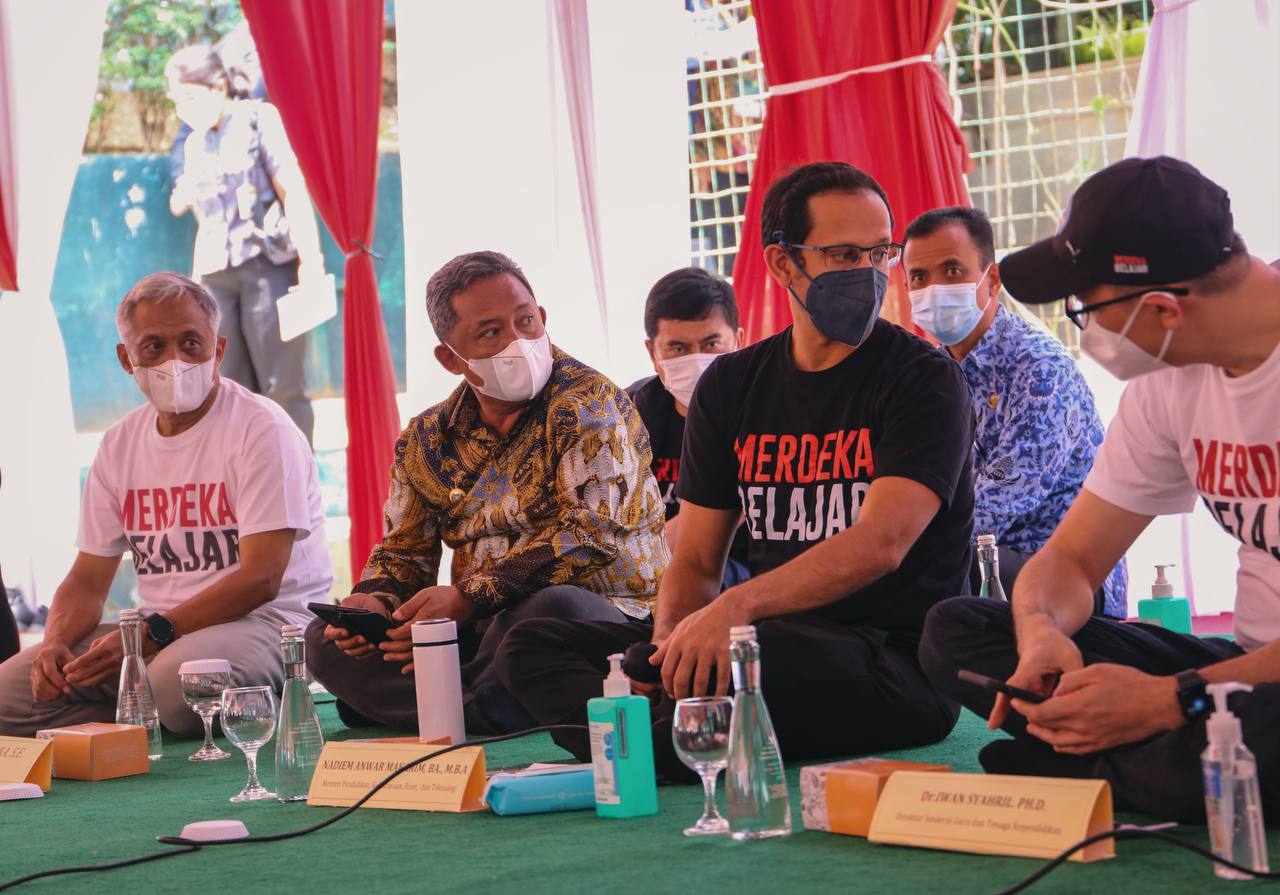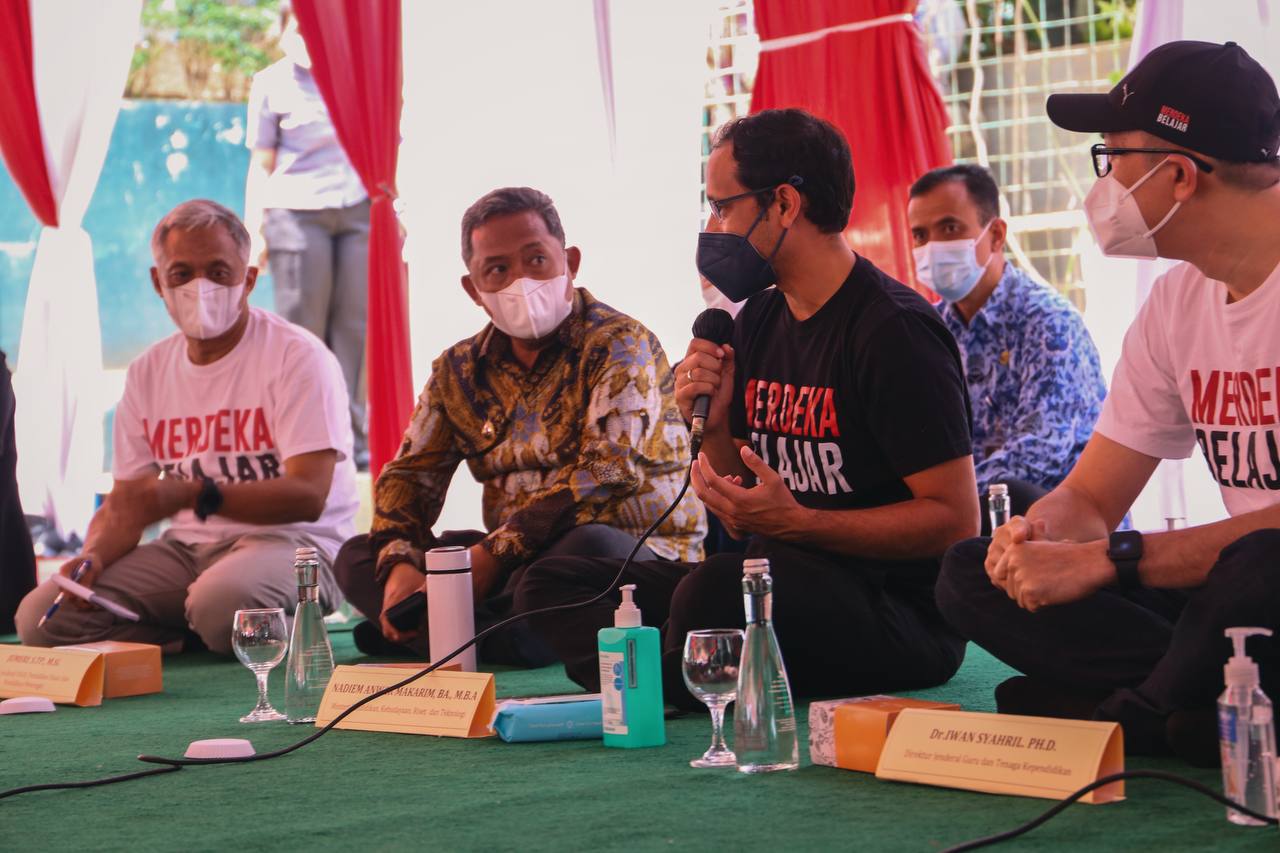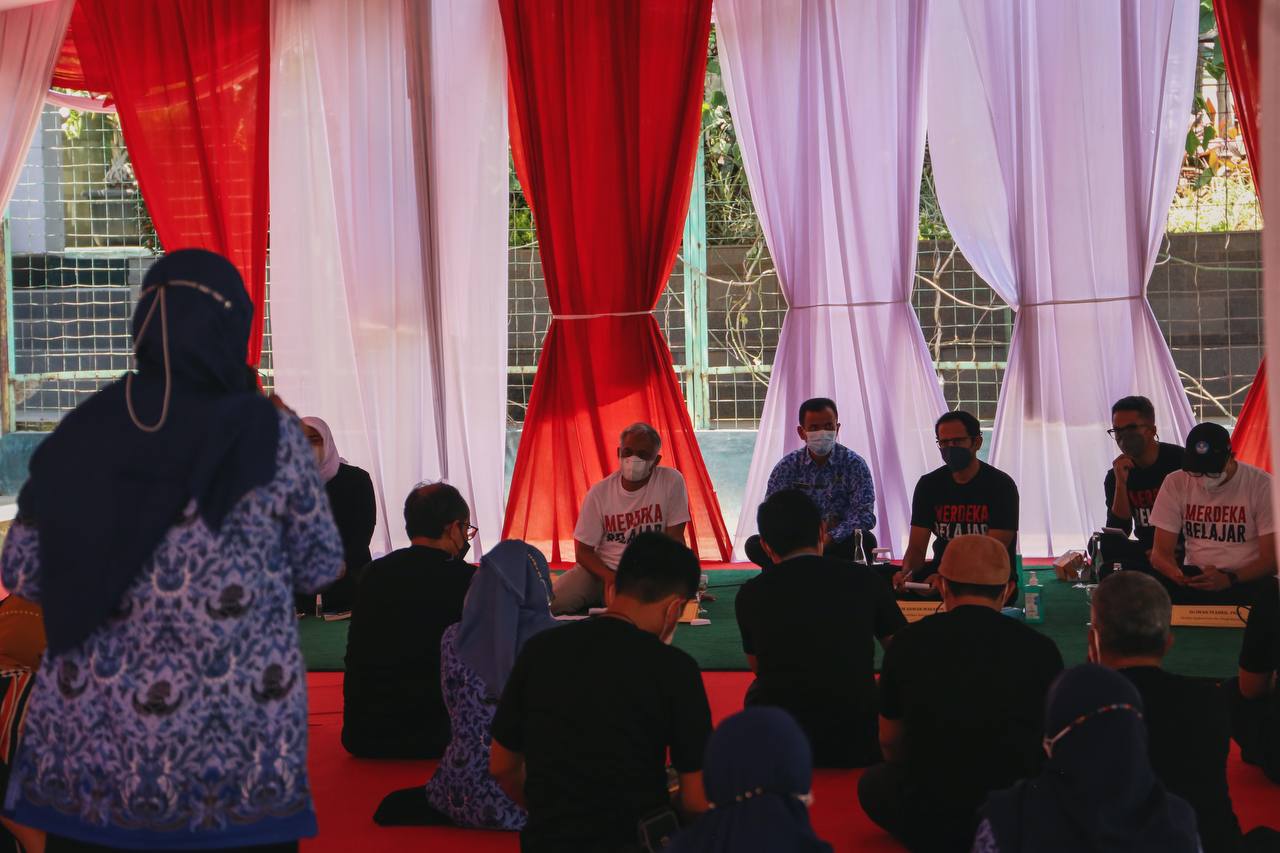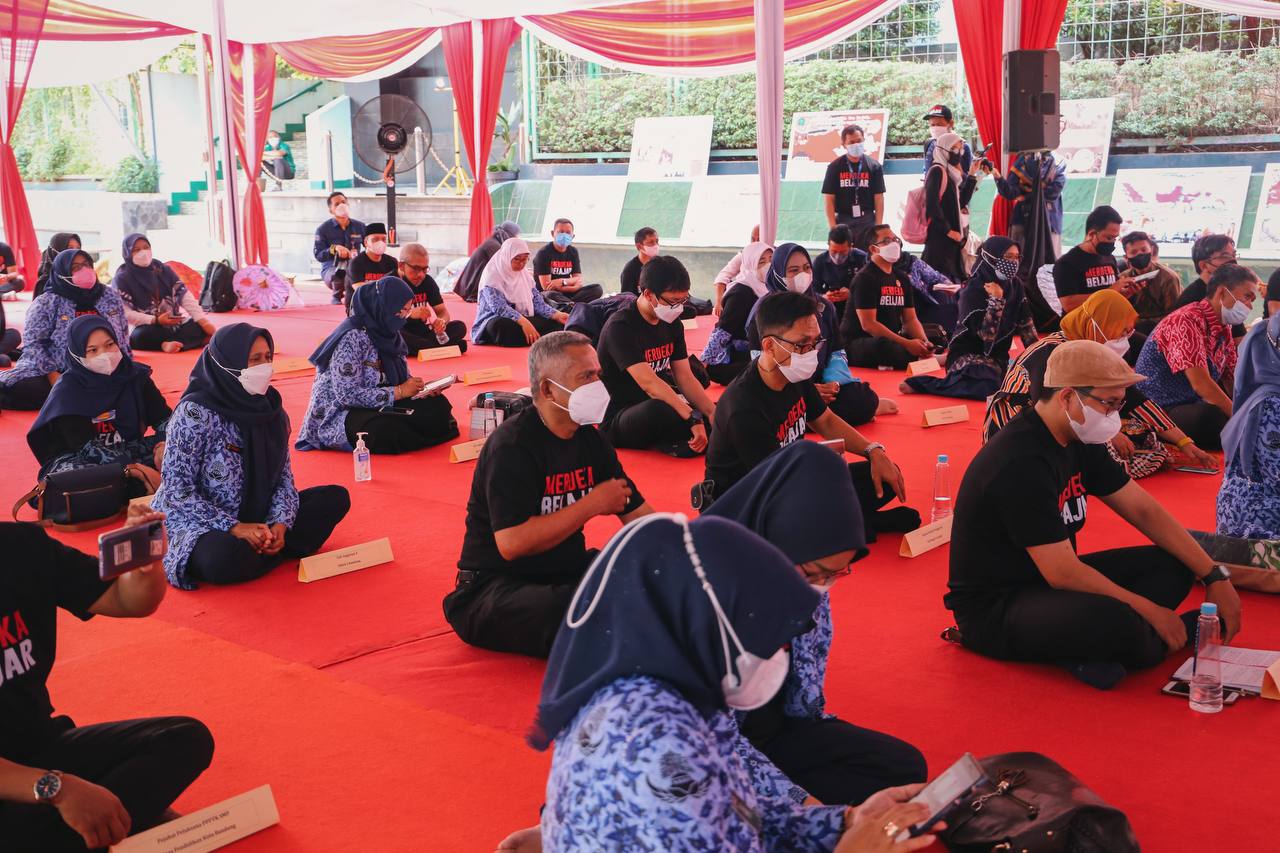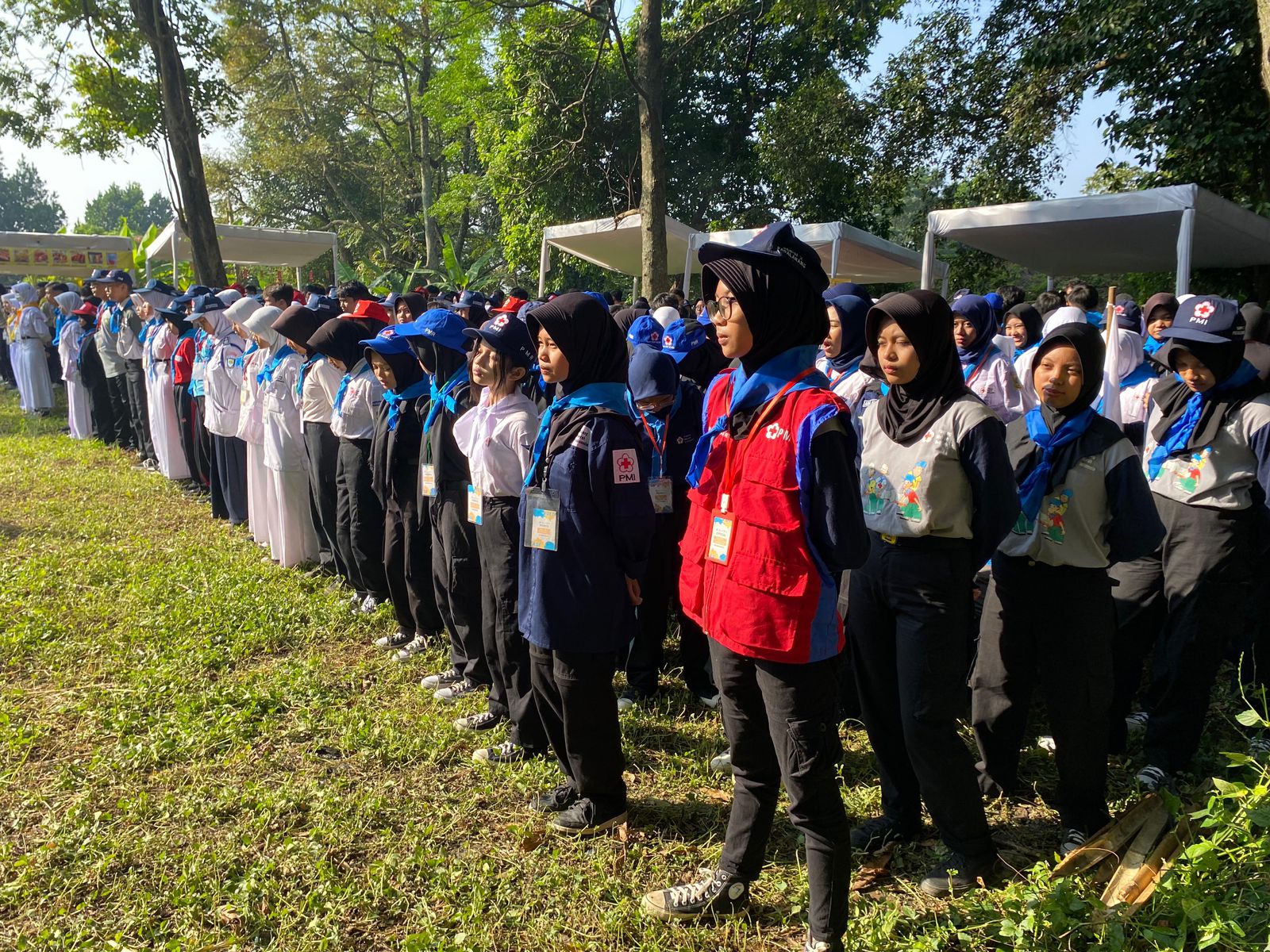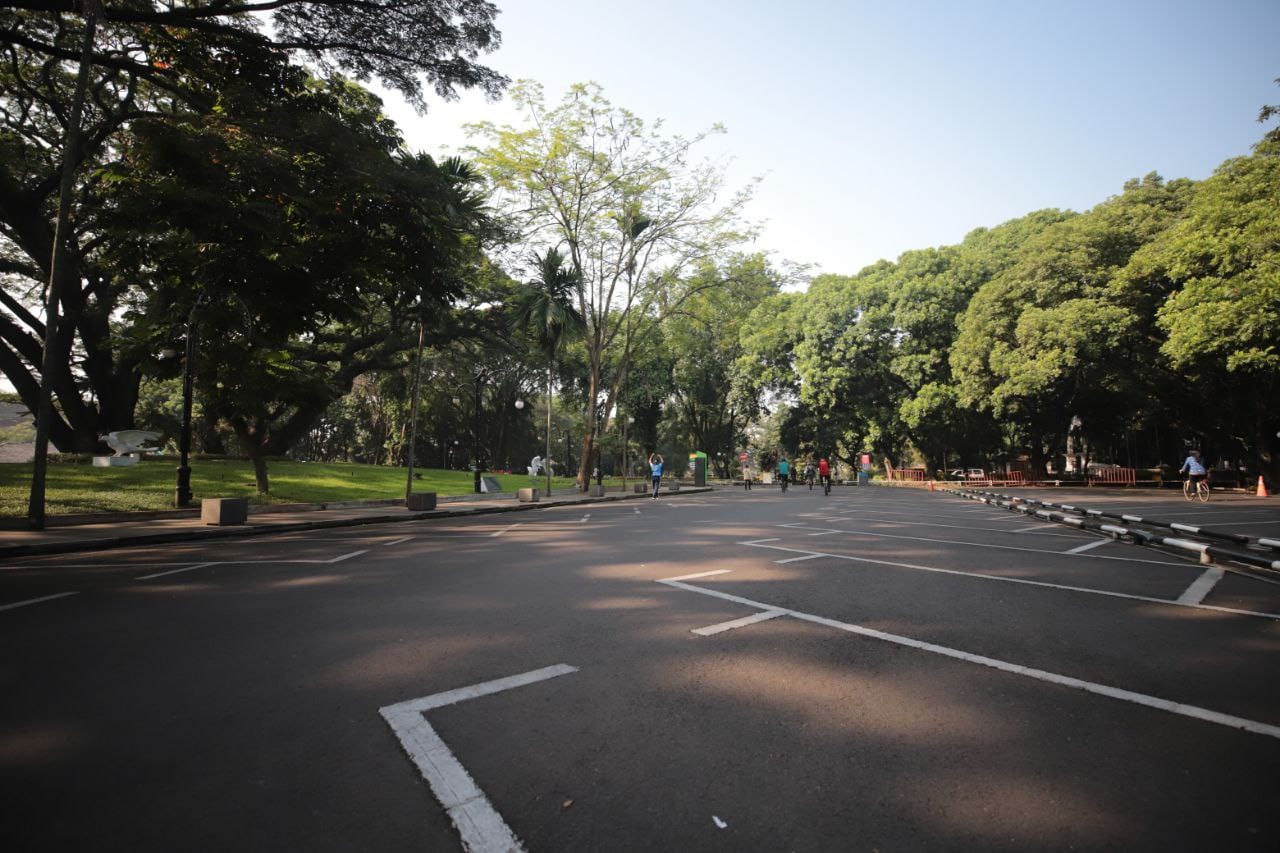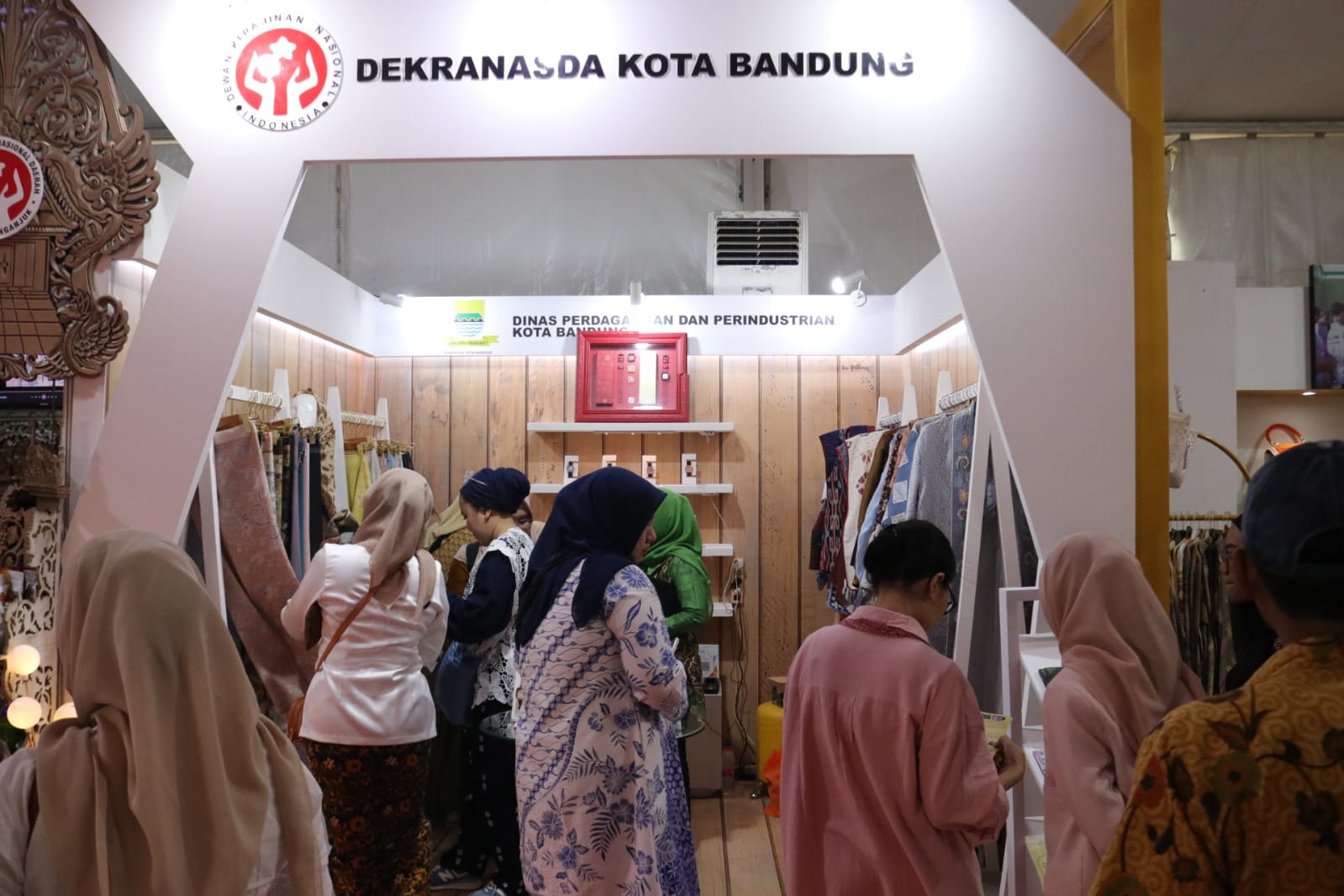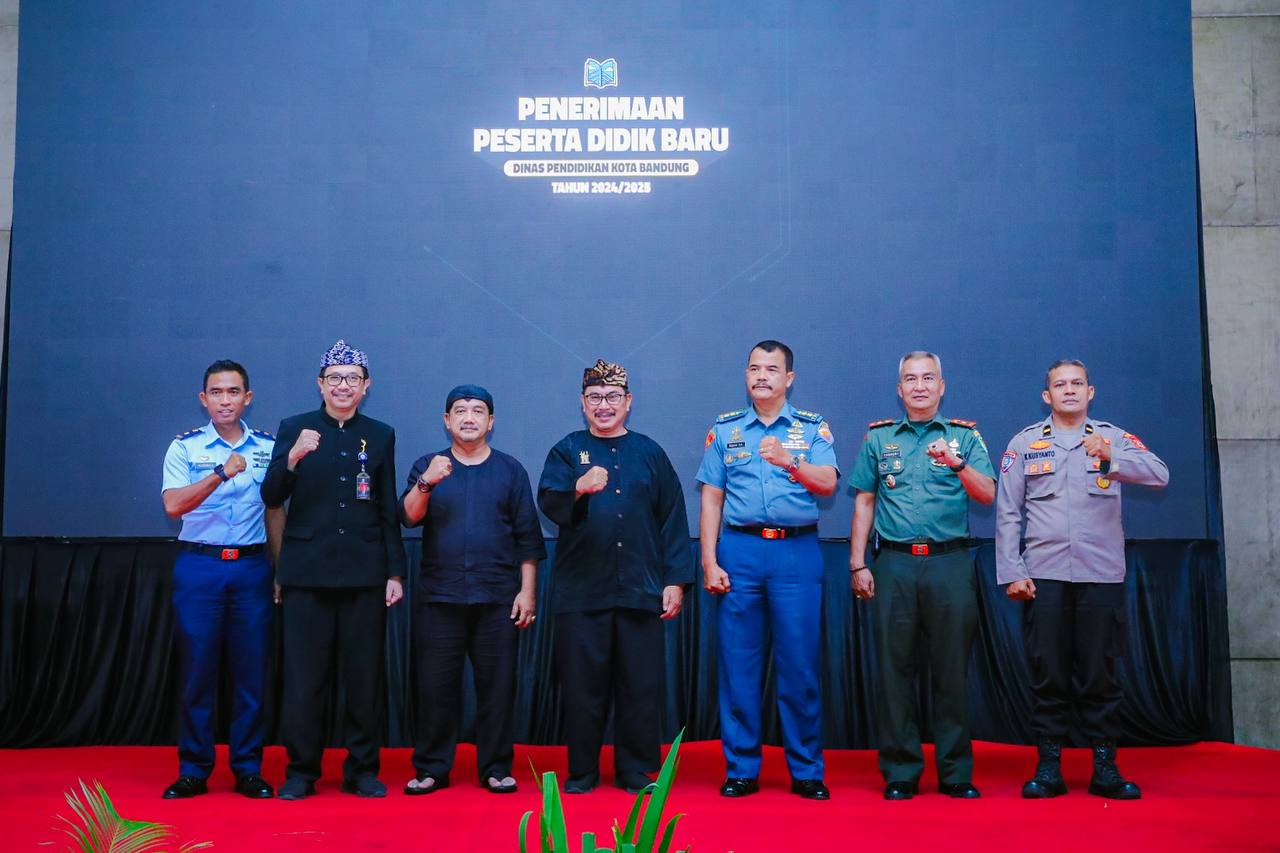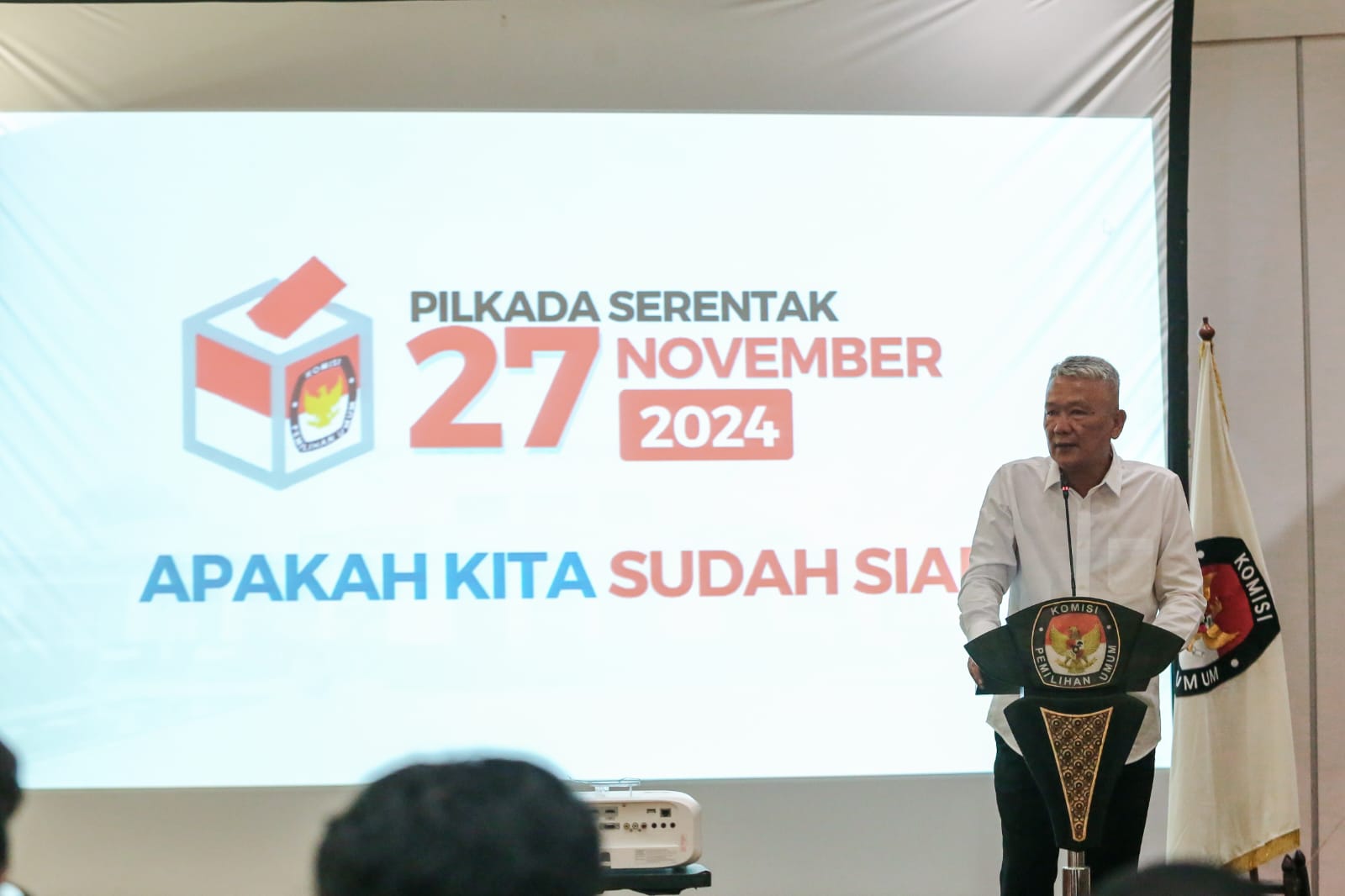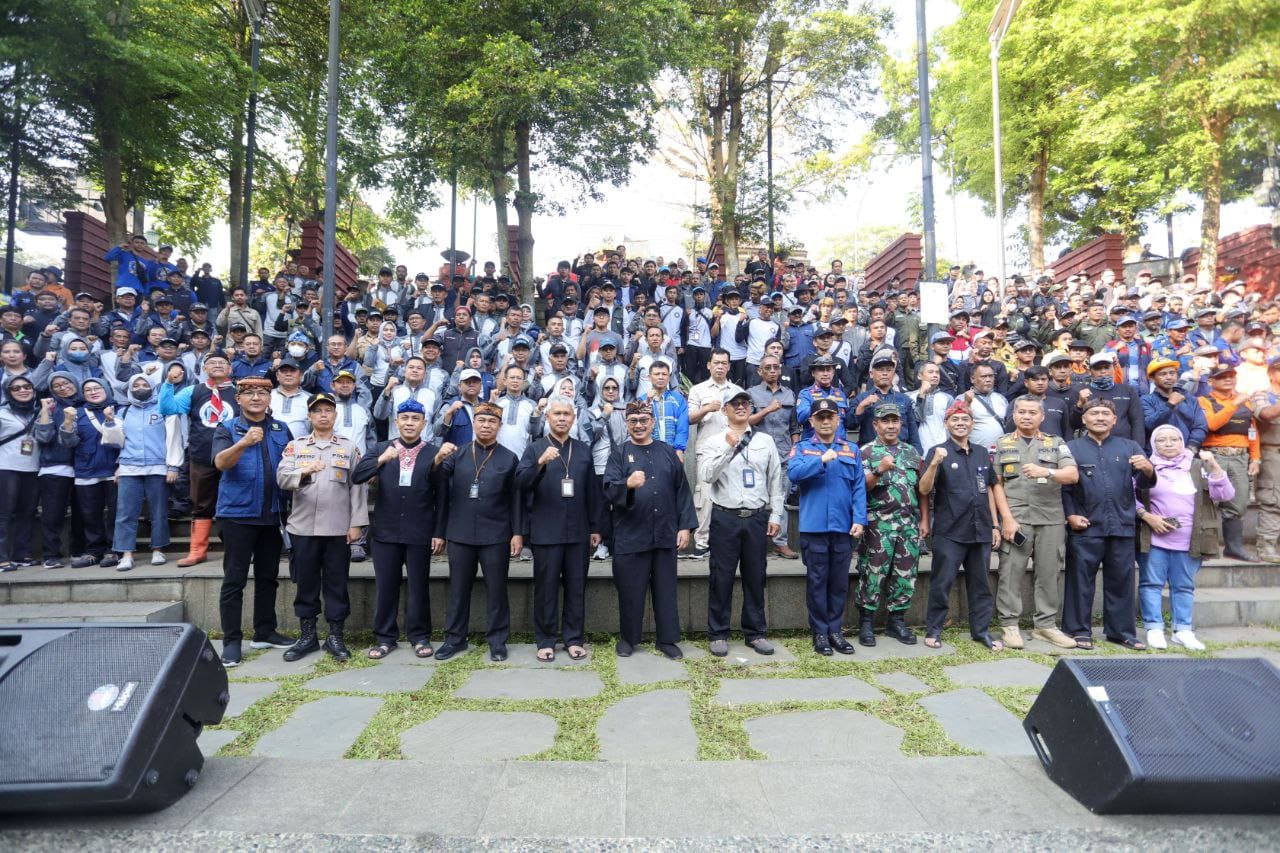The Best Learning Project Develops the Character of Bandung Students with Collaboration
During an evaluation visit of 100 percent Face-to-face Learning (PTM) at SMPN 2 Bandung City on Monday, January 17, 2022, the Indonesian Minister of Education, Culture, Research and Technology (Mendikbudristek) Nadiem Anwar Makarim and his staff were present in the midst of driving school principals from various level.
Students can now breathe a sigh of relief, especially for those whose schools have implemented a prototype curriculum. Students no longer need to be discouraged from choosing the faculty of their dreams without having to be separated from majors in high school.
Recently, people have been busy talking about prototype curriculum. One of the ideas of this prototype curriculum is the elimination of interest in majors which are considered to be a barrier for students to choose majors and careers. However, there are still many rumors milling about this new curriculum.
During an evaluation visit of 100 percent Face-to-face Learning (PTM) at SMPN 2 Bandung City on Monday, January 17, 2022, the Indonesian Minister of Education, Culture, Research and Technology (Mendikbudristek) Nadiem Anwar Makarim and his staff were present in the midst of driving school principals from various level.
The principal of SMAN 23 Bandung, Santy Kurnia Dewi, asked a question about the relationship between this prototype curriculum process and the choice of majors in higher education.
"How will the students choose the majors through the SNMPTN or SBMPTN pathways with this Prototype Curriculum?" asked Santy.
The head of the Education Standards, Curriculum and Assessment Agency of the Indonesian Ministry of Education and Culture, Anindito Aditomo said that the change in the prototype curriculum in SMA is indeed the most challenging in the implementation process, compared to the PAUD-SMP level.
However, Anindito said, with this prototype curriculum, students can more freely choose the majors they want in higher education without having to worry about majors during high school.
"Sisters whose schools become driving schools or who apply prototype curriculum are not disadvantaged. There is no longer a requirement for majors to register for the test. So previously, if you wanted to enter engineering, you had to come from science, not social studies or language, it will be eliminated," said Anindito.
Even so, Anindito added, students should still choose subjects that have a correlation with the specialization they will choose in higher education.
"Later, there will be a deeper selection in certain subjects. For example, if you want to enter engineering, it means there will be additional tests in Mathematics and Physics. So, it is better to choose a subject that supports this test later," he added.
So, what about the condition of the teachers whose subjects are chosen in the prototype curriculum? Anindito explained, if the teacher has received a professional allowance in Curriculum 13, then he or she is considered to have fulfilled teaching hours to get a professional allowance when the school has implemented the prototype curriculum.
"We will also give these teachers additional mandate through best learning projects. Character strengthening projects for students at all grade levels," he added.
Project Best Learning (PBL) is a student-centered learning model to conduct an in-depth investigation of a topic.
Students constructively carry out deepening learning with a research-based approach to serious, real, and relevant problems and questions.
The Principal of SMPN 2 Bandung, Erni Kustiani admits that PBL is a good step to create a new learning atmosphere for students.
"The prototype curriculum is very relevant for us to apply at this time. Because in this curriculum it is not only about increasing children's knowledge competence, but also good character," said Erni.
According to Erni, with the existence of PBL in the prototype curriculum, unconsciously, the good characteristics in children are formed by themselves.
"This character development appears when they do a joint project. The characters of critical reasoning, leadership, responsibility, creativity, and cooperation become visible. We have made projects twice and have been exposed. The children are very enthusiastic and happy," Erni admitted.
So, children are not only struggling with theory, but they can learn more through this PBL collaboration. (din)**




